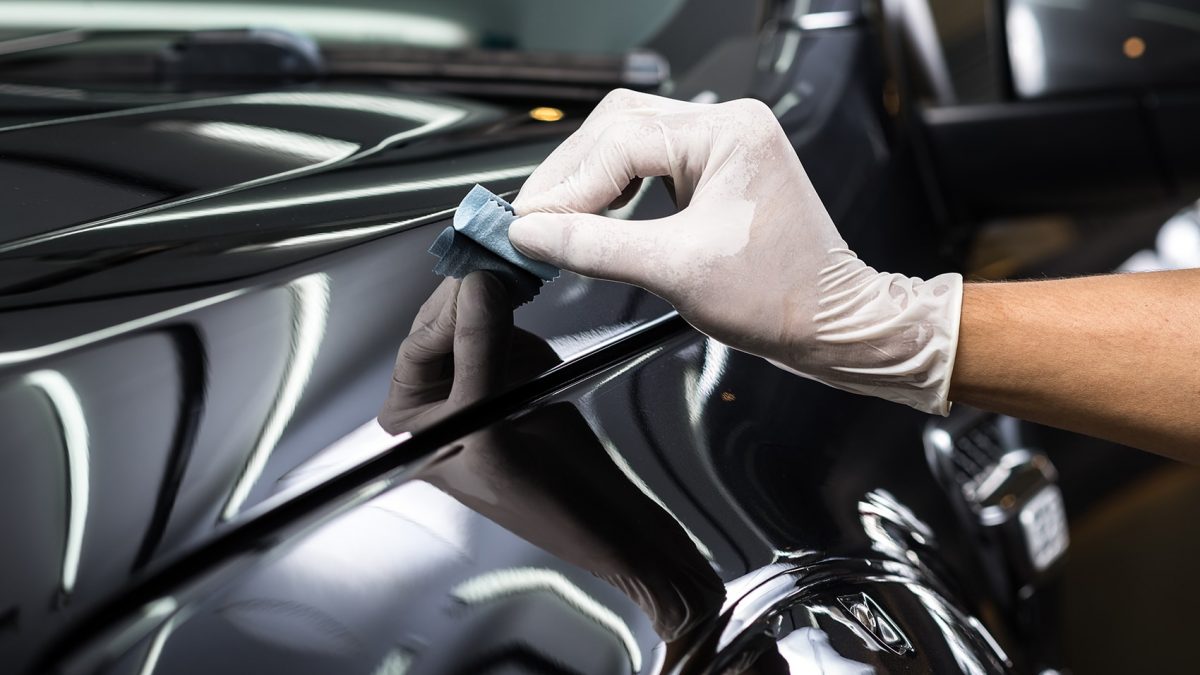Glass, an integral component of vehicles, buildings, and various industrial applications, plays a critical role in providing visibility and facilitating the passage of natural light. However, over time, glass surfaces can accumulate contaminants, scratches, and imperfections that compromise clarity, diminish aesthetics, and, more importantly, pose safety risks. Glass polishing emerges as a key solution to address these challenges, offering a range of benefits that extend beyond aesthetic improvement. This exploration delves into the importance of glass polishing, examining how it enhances visibility, ensures safety, and contributes to the longevity of glass surfaces in diverse settings.
1. Clarity and Visibility: The primary objective of glass polishing is to restore and enhance clarity, ensuring optimal visibility through glass surfaces. Whether it’s the windshield of a vehicle, windows in a commercial building, or glass panels in industrial machinery, maintaining clear and unobstructed vision is paramount for safety and functionality. Polishing removes imperfections, water spots, and contaminants that can hinder visibility, creating a crystal-clear surface that promotes safety and improves the overall user experience.

2. Automotive Safety: In the automotive industry, clear and well-maintained glass is crucial for driver and passenger safety. The windshield, in particular, serves as a critical component of the vehicle’s structural integrity and is essential for airbag deployment. Scratches, pitting, or haziness on the windshield can refract light, creating glare and reducing visibility, especially during nighttime driving. Glass polishing effectively addresses these issues, enhancing the safety of occupants and reducing the risk of accidents caused by impaired vision.
3. Reduction of Glare: Glare from sunlight or artificial lighting can significantly impede visibility through glass surfaces. This is especially relevant in vehicles, where direct sunlight or oncoming headlights can create glare on windshields. Glass polishing reduces surface imperfections that contribute to glare, ensuring that drivers and occupants can see clearly under various lighting conditions. The result is a safer driving experience with minimized visual distractions.
4. Removal of Contaminants: Glass surfaces are susceptible to a variety of contaminants, including mineral deposits, water spots, and pollutants. These contaminants not only compromise the aesthetic appeal of glass but can also obstruct the passage of light and impede visibility. Glass polishing involves the use of specialized compounds and abrasives to remove these contaminants, restoring the glass to its original clarity and transparency.
5. Preservation of Glass Longevity: Glass polishing contributes to the preservation of glass longevity by addressing surface imperfections before they escalate. Scratches and abrasions, if left unattended, can weaken the structural integrity of glass over time, leading to cracks and fractures. Regular polishing helps maintain the smoothness of the glass surface, preventing the progression of minor imperfections and extending the lifespan of glass in various applications.

6. Architectural and Commercial Applications: In architectural and commercial settings, glass is often used for windows, facades, and display cases. These applications demand pristine glass surfaces to maximize natural light, showcase products, and create aesthetically pleasing environments. Glass polishing enhances the visual appeal of architectural glass, ensuring that buildings maintain a polished and professional appearance. In commercial spaces, clear glass is essential for displaying merchandise effectively and creating an inviting atmosphere for customers.
7. Industrial Machinery and Equipment: Glass components in industrial machinery and equipment are subjected to harsh operating conditions that can result in scratches, chemical etching, and other forms of damage. Polishing is a vital maintenance practice in industrial settings, where clear visibility through glass panels is crucial for monitoring processes, ensuring safety, and identifying potential issues. Polishing contributes to the longevity and optimal performance of industrial glass elements.
8. Specialty Glass Surfaces: Specialty glass surfaces, such as those used in laboratories, medical equipment, and precision instruments, require meticulous care to maintain their optical clarity and functionality. Glass polishing is particularly critical in these applications, as imperfections or scratches on specialty glass can compromise the accuracy of measurements, impact research outcomes, or hinder the performance of medical devices.

9. Cost-Effective Maintenance: Glass polishing is a cost-effective maintenance solution compared to the replacement of entire glass panels or components. Regular polishing routines help prevent the need for costly replacements by addressing surface imperfections in their early stages. The cost efficiency of glass polishing makes it a practical and sustainable practice for preserving the clarity and safety of glass surfaces over time.
10. Environmental Considerations: In contrast to glass replacement, which involves the production of new materials and the disposal of old ones, glass polishing is an environmentally friendly practice. It promotes sustainability by extending the lifespan of existing glass, reducing the demand for new resources, and minimizing the environmental impact associated with manufacturing and disposal.
11. DIY and Professional Polishing: Glass polishing can be performed through do-it-yourself (DIY) methods or by professionals using specialized equipment and techniques. DIY polishing kits are available for minor surface imperfections, providing an accessible option for vehicle owners and homeowners. However, for more complex or large-scale applications, professional glass polishing services offer expertise, advanced tools, and the ability to address a wide range of issues with precision.

12. Future Trends and Innovations: As technology and materials continue to advance, future trends in glass polishing may include innovations such as nanotechnology-infused polishing compounds, smart coatings for enhanced durability, and automated polishing systems. These advancements aim to further improve the efficiency and effectiveness of glass polishing, ensuring that it remains a vital practice for maintaining visibility, safety, and the longevity of glass surfaces.
Glass polishing is a multifaceted practice that goes beyond aesthetic enhancement. It is a proactive approach to maintaining the clarity, safety, and longevity of glass surfaces in various applications. From automotive safety to architectural aesthetics and industrial functionality, the importance of glass polishing is underscored by its contribution to improved visibility, reduced safety risks, and the sustainable preservation of glass resources. As the practice continues to evolve, it will play a pivotal role in shaping the future of glass maintenance and the enhancement of visual experiences in diverse settings.
